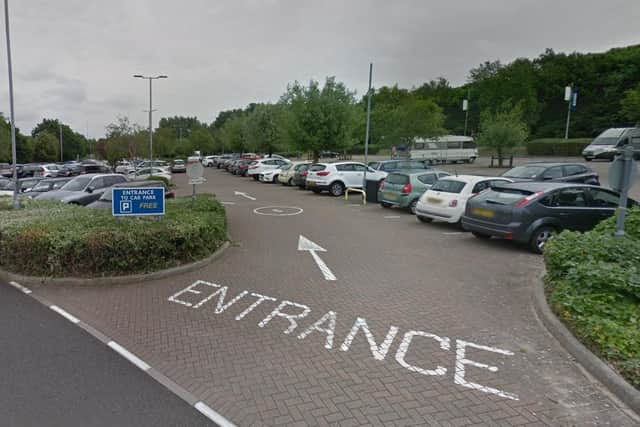Permission granted for Tesla to build charging station in Port Solent as part of roll-out
and live on Freeview channel 276
Portsmouth City Council planners said the scheme for the marina car park would have a minimal visual effect, would not lead to a reduction in parking spaces and would help promote more sustainable transport, approving the application on Monday (August 14).
READ NOW: Travellers leave site
The electric vehicle firm said the facility would help address a shortage of charging provision between Portsmouth and Southampton.


Advertisement
Hide AdAdvertisement
Hide Ad“There is a lack of existing ultra-rapid supercharging infrastructure along the M27,” a statement submitted with its application said. “The closest Tesla superchargers to the site are located 2km to the east at [Cosham] McDonald’s, however, there are only two available EV chargers at this site and they are often at full capacity.
“There is a lack of universally-compatible ultra-rapid EV chargers in this area to support ultra-low emissions vehicle traffic into Portsmouth and along the M27. Additional supercharging infrastructure, positioned strategically near to the M27 between Portsmouth and Southampton, is required.”
The company said it had made “a concerted effort” to find a suitable site near the motorways that also provided facilities for drivers to use while their vehicles are charging.
Of the 20 charging points the approved plans will see built, 12 will be Tesla Superchargers with the remainder being universally compatible.
Advertisement
Hide AdAdvertisement
Hide Ad“Electric vehicle charging points are vital infrastructure to support the transition to electric vehicles,” its statement added. “A good supply and distribution of charging points is essential to encourage more drivers to purchase electric vehicles and use them on a day-to-day basis.
“Specifically, locating charging points on main arterial route networks, where large numbers of people are often driving long distances, is necessary to ensure drivers are confident that they will be able to recharge vehicles when required.”
No objections were lodged by any consultees although one member of the public objected due to the lack of any provision for cars towing caravans travelling via the port.
One letter of support was submitted.
The planning permission granted by the council requires construction to begin within three years.